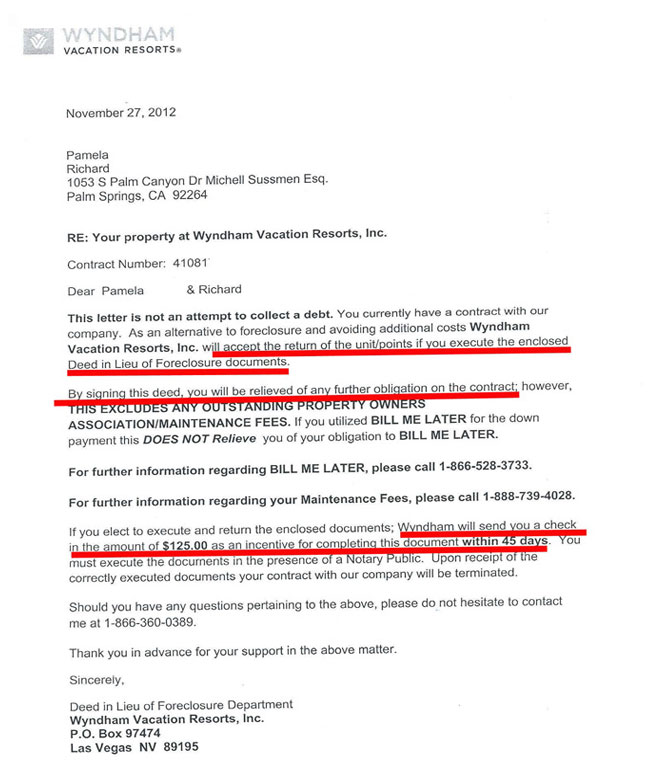If a problem takes place in the title transfer, you will be in a weak position given that the seller will already have your money. Buying through an online auction is the same as any other purchase directly from a seller. The escrow services that are connected with the on-line auction services will most likely not recognize with the procedures included in moving title to timeshares, nevertheless. Appropriately, if you want to utilize an escrow service with an online auction, you must exercise the escrow information with the seller prior to placing your quote. It is possible for a private to move title to a deeded timeshare himself or herself.
Purchasers also typically question if they must obtain title insurance coverage for a deeded timeshare purchase. In the United States title insurance can easily include numerous hundred dollars to the rate of a timeshare, and when added to other closing costs, title insurance coverage can increase the total closing costs to $700 or more. Many brokers will not sell a deeded timeshare without requiring that the buyer get title insurance coverage. If not needed as part of the sale, the buyer will need to decide whether it is beneficial. This Timesharing 101 course presumes that you are relatively new to timesharing; thus it follows that you are not in a good position to examine the kinds of sales where title is basically most likely to be clouded. If you transfer with an independent exchange business, you might require to offer some documents that you do have the use right for the week. The exchange company will probably contact the resort to confirm that you do can use the week. Drifting weeks: If you own a floating week, you require to contact your resort to have a week appointed to you that you can deposit. If you are depositing with an independent exchange business, you get in touch with the turn to schedule a week simply as you would if you were planning to use the week. You then deposit that week with the exchange company.
In the easiest circumstance, you schedule a week, then deposit that week with the exchange business. The exchange business will then call your turn to validate that you do have the usage right for that week. The procedure is more complicated if your resort does "bulk spacebanking". Bulk spacebanking is a practice in which a resort regularly transfers a large number of unassigned units with the exchange company in advance timeshare foreclosures of when the owners really choose to deposit their weeks. If your resort bulk spacebanks, you call your turn to let them understand that you mean to use your week for an exchange through the associated exchange company.
There is a more in-depth > bulk spacebanking discussion elsewhere on the TUG online forums - why would you ever buy a timeshare. There are some resorts that allow the owner either to book a week and deposit that week or to get a week from the resorts bulk spacebank deposits. If you have deposited a week, however then alter your mind and want your week back, you might be able to retrieve it from the exchange business's spacebank if: a) it is still readily available in the spacebank (significance no one else has used it to finish an exchange); and b) you have actually not completed an exchange utilizing the week.
You make an exchange with an exchange business when you accept provide up your timeshare use right in exchange for the right to utilize one of the weeks from their Spacebank inventory. Some exchanges companies will permit you to browse their stock prior to you deposit your week; other exchange companies will not enable you to look for an exchange unless you initially deposit your week. You need to confirm search requirements with the particular exchange company you wish to utilize. As of the time this is written (August 2000), RCI needs a deposit before browsing, whereas II will permit you to search first.

Indicators on How To Report Income From Timeshare You Need To Know
The exchange business will right away search to see if there is anything in their spacebank that meets these criteria which https://602e5ba2396cc.site123.me/#section-61bdc60164013 is of similar value to the week you are using as the basis for the search. If there is, you will be provided this as an immediate exchange; if not you will most likely be offered the chance to go into an "on-going search" utilizing those requirements. Requesting an on-going search resembles being put on a waiting list for future deposits of systems that satisfy your search requirements. After you accept an immediate exchange or you are provided an exchange as a result of an on-going search, some exchange companies will allow a time period (typically 24 hours or up until completion of the timeshare inheritance next company day at the exchange business) in which you can cancel the exchange without penalty.
In this case you may have to pay a cancellation penalty if you decrease the exchange. There are generally time limits connected with a deposit and usage of a timeshare week. RCI, for example, will not enable you to deposit a week earlier than 2 years in advance of the check-in date, and you should finish the exchange by accepting a system with a check-in date no behind one year after the check-in date for your deposited unit. Some exchange companies will extend the expiration date for an extra charge. If the exchange company operates utilizing points, you will know precisely the number of points you are entitled to receive based on the week you transfer with the exchange business, and the exchange company will show how many points are needed to complete different kinds of exchanges.
